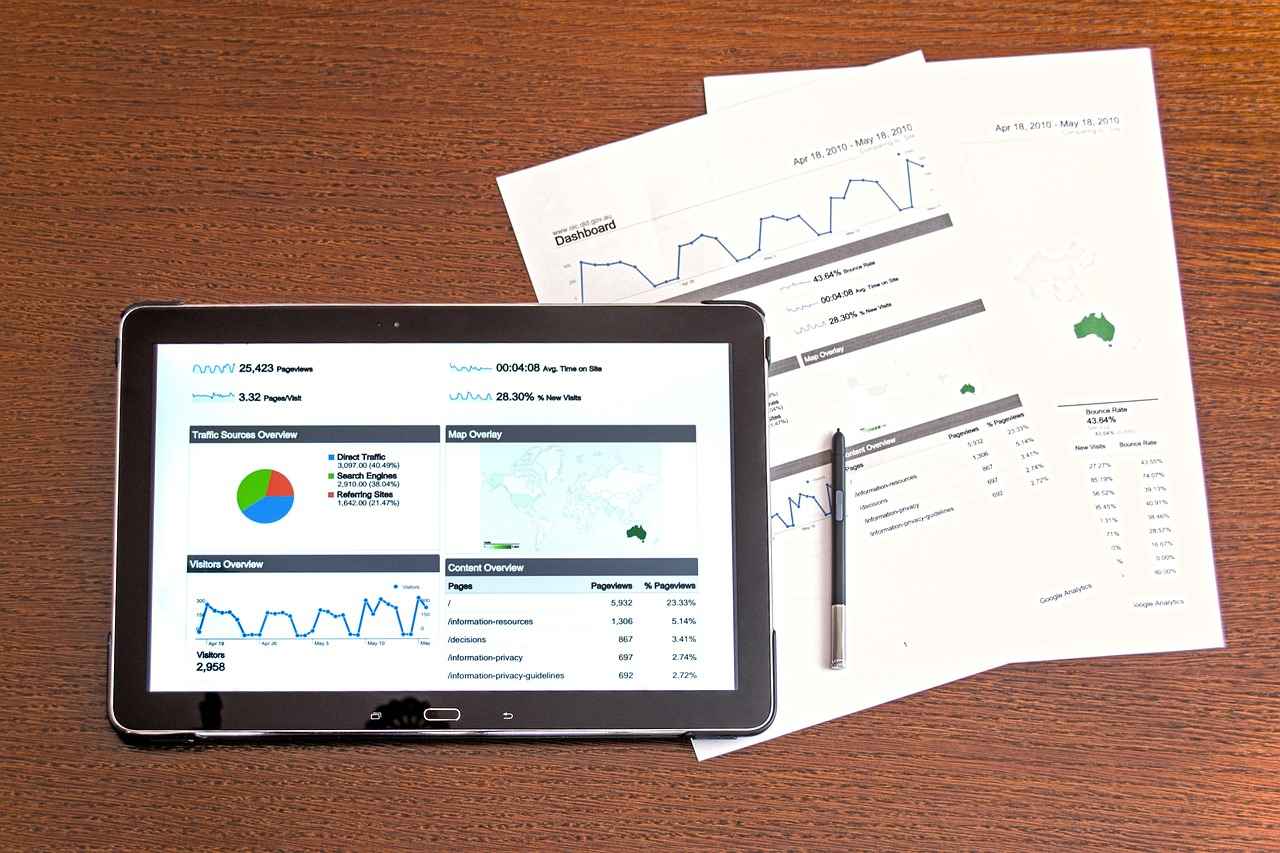This article explores the most accessible remote part-time data entry jobs suitable for beginners, highlighting key skills, job platforms, and tips for success in this growing field.
Understanding Data Entry Jobs
Data entry jobs involve inputting, updating, and managing data in various formats. These roles can be found across different industries, making them versatile for individuals seeking flexible work options. Typically, data entry tasks may include transcribing information, entering data into databases, and maintaining records.
Essential Skills for Data Entry
- Typing Speed and Accuracy: High typing speed and accuracy are fundamental to data entry jobs. These skills directly impact productivity and overall job performance.
- Attention to Detail: A keen eye for detail is necessary to avoid errors that could lead to significant issues.
- Software Proficiency: Familiarity with common software tools, such as Microsoft Excel and Google Sheets, is essential for efficient data management.
Where to Find Remote Data Entry Jobs
Numerous platforms list remote data entry jobs. Here are some popular job boards and websites:
- Freelance Platforms: Websites like Upwork and Fiverr offer a variety of data entry jobs. Creating a compelling profile can help you stand out.
- Job Boards: Websites such as Indeed and Glassdoor frequently post remote data entry positions, making them valuable resources for job seekers.
Tips for Applying Successfully
- Crafting an Effective Resume: A well-structured resume should highlight relevant skills and experiences effectively.
- Preparing for Interviews: Practice common interview questions to present your skills confidently.
Conclusion: Starting Your Data Entry Career
Embarking on a data entry career can be rewarding for beginners. By understanding the essential skills, exploring job platforms, and applying effectively, you can take the first step toward your new job.

Understanding Data Entry Jobs
Data entry jobs are essential roles in today’s data-driven world, where organizations rely on accurate information to make informed decisions. These positions primarily involve inputting, updating, and managing data across various formats, which can include spreadsheets, databases, and digital documents. As a data entry professional, you may find yourself working with different types of data, ranging from numerical information to textual data, all of which require a keen eye for detail and precision.
In essence, data entry jobs can be categorized into several key responsibilities:
- Data Input: Entering data from various sources into a computer system or database.
- Data Verification: Ensuring the accuracy of the entered data by cross-referencing with original documents.
- Data Management: Organizing and maintaining data records, which may involve updating existing entries or removing outdated information.
- Reporting: Generating reports based on the data collected for analysis and decision-making.
To excel in data entry roles, certain skills are paramount. These include:
- Typing Speed: A high typing speed is crucial for efficiency, allowing you to complete tasks quickly.
- Attention to Detail: The ability to spot errors and inconsistencies is vital to maintain data integrity.
- Technical Proficiency: Familiarity with data entry software and tools is essential to perform tasks effectively.
In summary, understanding the intricacies of data entry jobs is the first step toward a successful career in this field. By honing the necessary skills and familiarizing yourself with the responsibilities, you can position yourself as a valuable asset to any organization.

Essential Skills for Data Entry
To thrive in the competitive field of data entry, individuals must cultivate a range of essential skills that not only enhance their performance but also improve their employability. This section will delve into the key competencies required for success in data entry roles, such as typing speed, attention to detail, and familiarity with software tools.
- Typing Speed: A high typing speed is crucial for data entry professionals. It directly influences productivity, allowing for quicker completion of tasks. Many employers look for candidates with a typing speed of at least 60 words per minute (WPM). Regular practice using typing software or online tests can help improve this skill significantly.
- Attention to Detail: Data entry tasks often involve handling sensitive information where accuracy is paramount. A single mistake can lead to significant consequences. Therefore, having a keen eye for detail is essential. This skill ensures that data is entered correctly and consistently, reducing the need for revisions and enhancing overall efficiency.
- Software Proficiency: Familiarity with various software tools is another critical skill for data entry workers. Proficiency in programs such as Microsoft Excel, Google Sheets, and database management systems is often required. Understanding how to navigate these tools not only speeds up the data entry process but also allows for better data management and analysis.
- Organizational Skills: Effective data entry also requires strong organizational skills. Being able to categorize and prioritize tasks ensures that deadlines are met and that data is easily retrievable. This skill is particularly useful when managing large datasets or multiple projects simultaneously.
- Communication Skills: While data entry may seem solitary, communication is key, especially when collaborating with teams or reporting to supervisors. Clear communication helps in understanding project requirements and addressing any issues that may arise during data handling.
In conclusion, mastering these essential skills will not only help individuals succeed in data entry roles but also prepare them for advancement in their careers. Continuous learning and practice in these areas can lead to improved job performance and greater opportunities in the field.
Typing Speed and Accuracy
Typing speed and accuracy are essential components of success in data entry jobs. These skills not only influence the quality of work but also significantly impact overall productivity and job performance. In this section, we will explore how mastering these abilities can lead to better outcomes in data entry tasks.
High typing speed allows data entry professionals to complete tasks more efficiently. When individuals can type quickly, they can process large volumes of information in a shorter time frame. This efficiency is particularly important in environments where deadlines are strict and the volume of data is high. For instance, a typist who can achieve speeds of 70 words per minute (WPM) compared to someone typing at 40 WPM can complete assignments significantly faster, thus meeting or exceeding employer expectations.
However, accuracy is equally critical. Inaccurate data entry can lead to significant errors that may affect decision-making processes and result in financial losses for companies. A small typo can change the meaning of data, leading to misinterpretations and potential issues down the line. Therefore, maintaining a high level of accuracy is vital, and this often requires meticulous attention to detail and double-checking of work.
To enhance both typing speed and accuracy, individuals can utilize various techniques and tools. For example, online typing tests and software applications designed for typing practice can help improve speed while ensuring that accuracy is not compromised. Regular practice and consistent feedback are essential for developing these skills.
In summary, both typing speed and accuracy are foundational to achieving success in data entry jobs. By focusing on improving these skills, individuals can significantly enhance their productivity and overall job performance, leading to better career opportunities in this growing field.
Improving Typing Skills
Enhancing your typing skills is essential for anyone looking to excel in data entry tasks. This section will explore various techniques and tools that can help beginners improve their typing efficiency and accuracy, ultimately boosting productivity in their work.
- Practice Regularly: Consistent practice is key to improving typing skills. Set aside time each day to practice typing exercises or use online typing games to make learning fun.
- Utilize Typing Software: There are numerous software programs and online platforms, such as Typing.com and Keybr.com, that offer structured lessons and progress tracking to help you improve.
- Focus on Touch Typing: Learning touch typing can significantly increase your speed and accuracy. This technique involves using all fingers without looking at the keyboard, which can be mastered through dedicated training.
- Set Goals: Establish realistic typing goals, such as achieving a certain words-per-minute (WPM) rate. This will help keep you motivated and focused on your progress.
- Use Online Typing Tests: Regularly testing your typing speed and accuracy through online tests can provide valuable feedback and help you identify areas for improvement.
Benefits of Improved Typing Skills:
Improving your typing skills not only enhances your data entry efficiency but also reduces the likelihood of errors, leading to higher-quality work. As you become more proficient, you will find that you can complete tasks more quickly, allowing you to take on additional responsibilities or projects.
In conclusion, dedicating time to improve your typing skills can lead to significant advantages in your data entry career. By utilizing the right tools and techniques, beginners can enhance their efficiency and set themselves up for success in the field.
Importance of Accuracy
In the realm of data entry, accuracy is not merely a desirable trait; it is a fundamental requirement. The precision with which data is entered can significantly impact the overall quality of information systems, decision-making processes, and ultimately, business outcomes. Errors in data entry can lead to costly mistakes, misinformed decisions, and a tarnished reputation for the organization. Therefore, understanding the importance of accuracy is crucial for anyone looking to excel in this field.
One of the primary reasons accuracy is vital is that it ensures the reliability of data. Data integrity is paramount, especially in industries such as finance, healthcare, and research, where the stakes are high. A small error in data entry can result in erroneous reports, which can have far-reaching consequences. It is essential to double-check all entries and validate information to maintain high standards of accuracy.
Moreover, maintaining a high level of accuracy fosters trust among colleagues and clients. When data is consistently accurate, it builds a reputation for dependability and professionalism. This trust can lead to better collaboration and increased opportunities for career advancement.
To achieve accuracy in data entry, it is important to adopt certain best practices:
- Double-Check Your Work: Always review your entries before submitting them. A second look can help catch errors that may have been overlooked initially.
- Use Software Tools: Leverage tools that can help validate data and minimize errors. Many data entry software programs come with built-in error-checking features.
- Maintain a Consistent Format: Adhering to a uniform format can reduce confusion and ensure that data is entered correctly.
- Stay Focused: Minimize distractions while working to maintain concentration and reduce the likelihood of mistakes.
In conclusion, the importance of accuracy in data entry cannot be overstated. By recognizing its significance and implementing strategies to enhance precision, data entry professionals can contribute to their organizations’ success and build a rewarding career in this field.
Software Proficiency
is a critical component for anyone looking to succeed in data entry roles. As technology continues to evolve, being adept with various software applications not only enhances your efficiency but also increases your employability. This section will explore some of the most commonly used programs in data entry and provide insights on how to gain proficiency in them.
- Microsoft Excel: This is perhaps the most widely used application in data entry. Excel allows users to organize, analyze, and manipulate data effectively. To gain proficiency, consider taking online courses or tutorials that cover formulas, pivot tables, and data visualization techniques.
- Google Sheets: Similar to Excel, Google Sheets is a cloud-based alternative that facilitates collaboration. Familiarizing yourself with its features, such as sharing and real-time editing, can be beneficial. Utilize Google’s own training resources to enhance your skills.
- Database Management Systems (DBMS): Applications like Microsoft Access or MySQL are essential for managing larger datasets. Learning the basics of database design and SQL (Structured Query Language) can significantly improve your data handling capabilities.
- Data Entry Software: Specific software designed for data entry, such as Data Ladder or Formstack, can streamline your workflow. Many of these applications offer tutorials and user guides to help you get started.
To gain proficiency in these applications, consider the following strategies:
- Online Courses: Platforms like Coursera, Udemy, and LinkedIn Learning offer comprehensive courses on various software applications.
- Practice: Regular practice is key. Create sample projects or use practice datasets to familiarize yourself with different functionalities.
- Community Forums: Engaging with online communities, such as forums or social media groups, can provide support and additional learning resources.
In conclusion, mastering software applications is essential for anyone pursuing a career in data entry. By investing time in learning these tools, you will not only enhance your job prospects but also improve your overall productivity in data management tasks.

Where to Find Remote Data Entry Jobs
In today’s digital age, remote data entry jobs are more accessible than ever. Numerous platforms cater to individuals seeking flexible work opportunities. Below, we will explore some of the most popular job boards and websites where beginners can find suitable positions in this growing field.
- Freelance Platforms: Websites like Upwork and Fiverr offer a plethora of data entry jobs. These platforms allow you to create a profile showcasing your skills, making it easier for potential clients to find you.
- Job Boards: Popular job boards such as Indeed, Glassdoor, and SimplyHired regularly list remote data entry positions. You can filter your search by remote opportunities to find jobs that suit your needs.
- Company Websites: Many companies post their job openings directly on their websites. Visiting the careers page of companies you are interested in can yield great results. Look for sections dedicated to remote work.
- Social Media and Networking: Platforms like LinkedIn are invaluable for job seekers. You can join groups focused on data entry jobs and connect with professionals in the field.
By utilizing these resources, beginners can effectively navigate the job market and find remote data entry positions that align with their skills and interests. Remember to tailor your applications to highlight your strengths and emphasize your willingness to learn and adapt in this dynamic field.
Freelance Platforms
have become a vital resource for individuals seeking data entry jobs, particularly for beginners eager to establish their careers in this field. Websites such as Upwork and Fiverr offer a plethora of opportunities that cater to various skill levels. This section will delve into how to effectively navigate these platforms and create a compelling profile that attracts potential clients.
To begin with, it’s essential to understand the importance of a well-crafted profile. Your profile serves as your online resume, and it should highlight your strengths and skills. Here are some key elements to focus on:
- Profile Picture: A professional headshot can make a significant difference. It helps establish trust and credibility.
- Compelling Bio: Write a concise and engaging bio that outlines your experience, skills, and what you can offer to clients. Use keywords related to data entry to enhance visibility.
- Portfolio: If applicable, showcase examples of your previous work. This can include data entry tasks, spreadsheets, or projects that demonstrate your proficiency.
- Skill Tags: Utilize relevant skill tags that align with the services you provide. This will help clients find you when searching for specific skills.
Once your profile is set up, the next step is to start bidding on jobs. Here are some tips for success:
- Tailor Your Proposals: Each job you apply for should have a tailored proposal. Address the client’s needs and explain how your skills make you the ideal candidate.
- Set Competitive Rates: Research the market to set your rates competitively while considering your skill level and experience.
- Build a Reputation: Initially, you may need to accept lower-paying jobs to build your profile and receive positive reviews. This will enhance your credibility on the platform.
In conclusion, freelance platforms like Upwork and Fiverr provide numerous opportunities for data entry jobs. By creating a compelling profile and strategically applying for jobs, beginners can successfully navigate these platforms and start their careers in data entry.
Job Boards and Company Websites
In today’s digital age, many companies are increasingly posting remote data entry positions on various job boards and their own websites. This has created a wealth of opportunities for individuals looking to start a career in data entry, especially for beginners. Understanding where to find these jobs and how to navigate these platforms effectively is crucial for success.
Here are some popular job boards where you can find remote data entry positions:
- Indeed: A comprehensive job board that aggregates listings from various sources. Use specific keywords like “remote data entry” to refine your search.
- FlexJobs: This site specializes in remote and flexible job listings, ensuring that you find quality positions without scams.
- LinkedIn: A professional networking site that also features job postings. Make sure to optimize your profile to attract potential employers.
- SimplyHired: Offers a wide range of job listings, including data entry roles. You can filter results by location and job type.
- Remote.co: A platform dedicated to remote job opportunities across various fields, including data entry.
To navigate these job boards effectively, consider the following tips:
- Use specific keywords: Tailor your search terms to include “remote,” “data entry,” and any specific software you are familiar with.
- Set up job alerts: Most job boards allow you to set alerts for new postings, ensuring you don’t miss out on opportunities.
- Research companies: When you find a job listing, take the time to research the company to ensure it’s reputable.
- Customize your applications: Tailor your resume and cover letter for each application to highlight relevant skills and experiences.
By utilizing these job boards and following these tips, you can enhance your chances of finding a suitable remote data entry position that aligns with your skills and career goals.

Tips for Applying Successfully
Applying for data entry jobs can be highly competitive. To increase your chances of success, it’s essential to implement strategies that will make your application stand out to potential employers. Below are some practical tips to enhance your application process.
- Tailor Your Resume: Customize your resume for each job application. Highlight relevant skills and experiences that align with the job description. Use keywords from the job posting to demonstrate your suitability for the role.
- Showcase Your Skills: Include a skills section in your resume that lists your typing speed, software proficiency, and any other relevant competencies. This will make it easier for employers to see your qualifications at a glance.
- Include a Cover Letter: A well-written cover letter can set you apart from other candidates. Use it to explain why you are interested in the position and how your skills make you a perfect fit.
- Leverage Online Platforms: Utilize job boards and freelance websites to find opportunities. Create profiles on platforms like Upwork and Fiverr, and ensure they reflect your skills and experiences accurately.
- Network: Connect with professionals in the data entry field through LinkedIn or relevant online forums. Networking can lead to job referrals and valuable insights into job openings.
- Prepare for Interviews: Research common interview questions for data entry positions and practice your responses. Be ready to discuss your skills and experiences in detail, and prepare questions to ask the interviewer.
- Follow Up: After submitting your application or attending an interview, send a follow-up email to express your gratitude for the opportunity and reiterate your interest in the position.
By implementing these tips, you can enhance your application and significantly improve your chances of landing a data entry job. Remember, persistence and preparation are key in this competitive job market.
Crafting an Effective Resume
A well-crafted resume is a vital component of any job application, especially in competitive fields like data entry. It serves as your first impression, showcasing your skills and experiences to potential employers. To create a resume that stands out, it’s essential to focus on several key elements that highlight your qualifications effectively.
- Tailor Your Resume: Customize your resume for each job application. Highlight the skills and experiences that are most relevant to the specific position you are applying for. This approach demonstrates your genuine interest in the role.
- Use Keywords: Incorporate industry-specific keywords from the job description. Many companies use applicant tracking systems (ATS) that filter resumes based on these keywords. Including them can increase your chances of getting noticed.
- Highlight Relevant Skills: Focus on skills that are crucial for data entry, such as typing speed, accuracy, and software proficiency. Create a dedicated section for skills to make them easily identifiable.
- Showcase Experience: List your work experience in reverse chronological order. Include specific examples of data entry tasks you have performed, emphasizing any achievements or contributions that demonstrate your abilities.
- Education and Certifications: Mention your educational background and any relevant certifications that enhance your qualifications. This can include training in data management or proficiency in specific software tools.
In addition to these tips, ensure that your resume is visually appealing and easy to read. Use clear headings, bullet points, and a professional font. A well-structured resume not only conveys your information effectively but also reflects your professionalism.
Finally, proofread your resume for any grammatical or typographical errors. A polished resume can significantly impact your job application, making it clear that you pay attention to detail—an essential trait for data entry roles.
By following these guidelines, you can craft a compelling resume that effectively highlights your relevant skills and experiences, increasing your chances of landing that desired job.
Preparing for Interviews
Interviews can indeed be daunting experiences for many job seekers, especially for those venturing into the world of remote data entry jobs for the first time. However, with the right preparation, you can approach your interview with confidence and poise. This section provides valuable insights into common interview questions and effective strategies to present your skills in the best light.
Understanding Common Interview Questions
- Tell me about yourself: This question is often used to break the ice. Prepare a brief summary of your background, focusing on your education and relevant experiences.
- What are your strengths and weaknesses? Be honest but strategic. Highlight strengths that align with the job requirements and mention a weakness along with how you are working to improve it.
- Why do you want to work here? Research the company beforehand and relate your answer to their values and mission, demonstrating your genuine interest.
- Describe a challenge you faced and how you overcame it: Use the STAR method (Situation, Task, Action, Result) to structure your response, showcasing your problem-solving skills.
Presenting Your Skills Confidently
Confidence is key during interviews. Here are some tips to help you present your skills effectively:
- Practice: Conduct mock interviews with friends or family to build your confidence and receive constructive feedback.
- Know Your Resume: Be prepared to discuss everything on your resume in detail, especially your data entry skills and relevant experiences.
- Dress Appropriately: Even for remote interviews, dressing professionally can boost your confidence and create a positive impression.
- Ask Questions: Prepare thoughtful questions to ask the interviewer, showing your interest in the role and company.
In conclusion, while interviews can be stressful, thorough preparation can significantly enhance your performance. By understanding common questions and practicing your responses, you can present your skills confidently and make a lasting impression.

Conclusion: Starting Your Data Entry Career
Starting a career in data entry can be an exciting and fulfilling opportunity for those looking to enter the workforce or switch careers. This conclusion aims to summarize the essential aspects of embarking on this journey and inspire you to take that crucial first step toward your new job.
Data entry jobs are not only accessible but also provide a solid foundation for developing various professional skills. As you begin your career, it’s important to understand the nature of these roles, which typically involve inputting, updating, and managing data in various formats. This understanding will help you navigate the job market effectively.
To excel in data entry, certain skills are vital. High typing speed and accuracy are among the most important competencies. Practicing these skills can significantly enhance your productivity and performance. Moreover, being proficient in commonly used software applications is crucial, as it will enable you to complete tasks efficiently.
When searching for remote data entry jobs, there are numerous platforms available, including freelance websites and job boards. Creating a compelling profile on platforms like Upwork or Fiverr can increase your chances of landing a job. Additionally, many companies post remote positions on popular job boards, making it easier for beginners to find suitable opportunities.
As you prepare to apply, remember that a well-crafted resume and interview preparation are key to standing out in a competitive job market. Highlighting your relevant skills and experiences will make a significant difference in your application.
In conclusion, starting a data entry career is a rewarding endeavor that can lead to various opportunities. By focusing on developing your skills, exploring job platforms, and preparing thoroughly for applications, you can successfully kickstart your new career path. Take the first step today, and embrace the journey ahead!
Frequently Asked Questions
- What qualifications do I need for remote data entry jobs?
Most remote data entry jobs don’t require formal qualifications. However, having a high school diploma or equivalent can be beneficial. The key is to demonstrate your typing skills, attention to detail, and familiarity with software tools.
- How can I improve my typing speed?
Improving your typing speed can be achieved through practice. Consider using online typing tests and games, or software like Typing.com. Setting aside just 15-30 minutes a day can lead to significant improvements!
- Where can I find remote data entry jobs?
You can find remote data entry jobs on freelance platforms like Upwork and Fiverr, as well as job boards such as Indeed and Glassdoor. Don’t forget to check company websites directly for openings!
- What should I include in my resume for a data entry position?
Your resume should highlight your typing speed, software proficiency, and any previous experience related to data entry. Be sure to tailor your resume for each job application to make it stand out!
- How do I prepare for a data entry interview?
Research common interview questions related to data entry, practice your responses, and be ready to discuss your skills and experiences. Showing confidence and enthusiasm can make a great impression!
